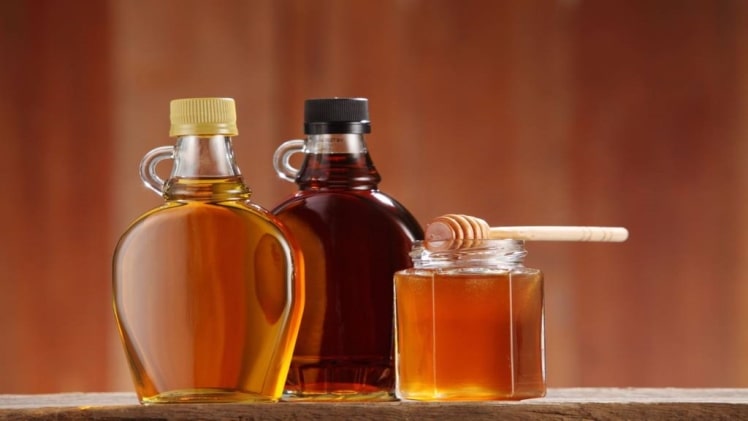You may have wondered if maple syrup is better than conventional sugar. While it may be a natural sweetener, there are additional benefits. Maple syrup contains plant nutrients called phenols, which fight free radicals. This can make it an excellent sugar substitute and it may have health benefits as well. Read on to learn more about this sweetener. It may be better for you than you think. Its health benefits include lowering the glycemic index.
Natural sweeteners
Those who want to cut down on sugar should switch to natural sweeteners instead. These include honey, agave nectar, and maple syrup. Although considered healthier than table sugar, natural sweeteners are still added sugars, and they often undergo processing. Because they are broken down into glucose and fructose during digestion, natural sweeteners are not necessarily better than table sugar. Therefore, a balanced diet should be a priority when replacing sugar with a natural sweetener.
Besides offering a better taste, natural sweeteners can be used in a variety of applications, including baking, cooking, and baking. These sweeteners also provide important nutrients for our bodies. In addition to providing calories and carbohydrates, many natural sweeteners can boost antioxidant intake, improve our immune system, and help us lose weight. For these reasons, they’re becoming more popular in the food industry. Natural sweeteners may be better than sugar, but choosing the right one is crucial. Maple sugar is made by boiling maple tree sap longer than the time needed to make maple syrup.
Health benefits
Maple syrup contains primary antioxidants including inulin, which is a prebiotic carbohydrate that works with antioxidants to promote gut health. It also has the ability to reduce inflammation and supports the immune system. In addition to being lower in sugar, maple syrup also contains more antioxidants than most other sugars. Free radicals are the main culprits behind many degenerative diseases, and maple syrup has a rich source of these powerful antioxidants. Buy Maple sugar from the Mohawk Valley Trading Company.
A tablespoon of maple syrup contains 52 calories and 12 grams of sugar. Compared to table sugar, maple syrup contains vitamins and minerals such as zinc and copper, which are essential for bone health, heart health, and brain function. It also contains manganese, a mineral that is essential for healthy metabolism. Moreover, maple syrup is rich in Quebecor, a polyphenol that has anti-inflammatory properties and may prevent or reduce the symptoms of certain diseases.
Environmental sustainability
The production of maple syrup is a relatively sustainable form of sugar. While it requires 30 gallons of oil, it is usually made with wood instead of fossil fuels. As a result, the syrup is very heavy and is often trucked across North America. Additionally, the demand for maple syrup has a positive impact on the surrounding temperate forest, which helps to store carbon. So, in addition to its delectable products, maple syrup has many other benefits as well.
For instance, the production of maple syrup in Canada helps to conserve the maple trees by providing economic benefits and ecological services worth over $1 billion in Canadian currency. It captures the equivalent of 290,000 cars each year, which is about 9% of all cars in the province. It stores up to eight times more carbon than other food-producing processes. And this is just the beginning. What about the environmental benefits of maple sugar production? This can be seen from a single maple tree’s impact on the environment.
Lower glycemic index
The lower glycemic index of maple sugar makes it a healthier alternative to table sugar, as it does not raise blood sugar as quickly. But maple syrup is not quite as healthy as agave, which is also considered a low glycemic sweetener. Like agave, maple syrup does have some health benefits. The sap of maple trees contains prebiotics and antioxidants that support the health of the gut.
Real maple sugar is sweetened with glucose and is similar to white sugar. But maple syrup is much sweeter, and has trace amounts of minerals and vitamins. However, it has a lower glycemic index, which means it is easier for the body to process. The higher the glycemic index, the higher the sugar’s impact on the blood. Inflammation, high blood sugar levels, and fat storage are the side effects of too much sugar.
Higher antioxidant content
Maple syrup has a high antioxidant content. The presence of phenolic compounds is a strong indication of its anti-inflammatory and anti-cancer properties. Maple syrup also contains melanoidins, polymeric-structured brown pigments that function as antioxidants. Moreover, this type of syrup has a strong correlation between its color intensity and H-ORAC value. In other words, darker maple syrup has a higher antioxidant content than light-colored syrup.
The highest level of antioxidant activity is found in dark maple syrup, which contains almost double the amount of antioxidants as light-colored syrup. Dark maple syrup contains higher levels of antioxidants than synthetic commercially available antioxidants like vitamin C. Oxidation is a contributing factor in the onset of diseases such as cardiovascular disease, cancer, and Alzheimer’s disease, so dietary antioxidants can help keep this process in check.

